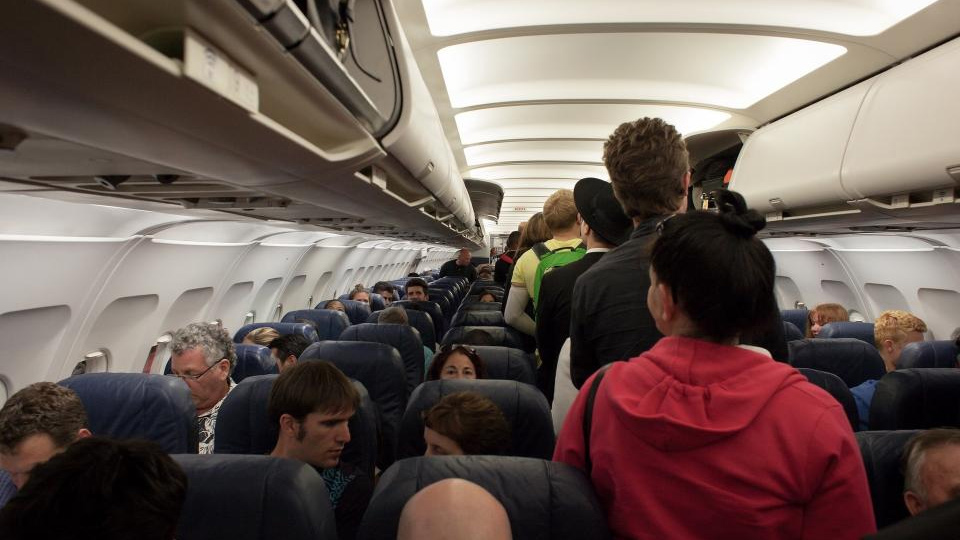How you board a plane affects your chances of getting ill afterwards
The size of the plane is also a factor

It's fortunate that the rise of air travel as a popular way of getting around the world has occurred at the same time as a dramatic improvement in human healthcare. While planes are one of the quickest ways for humans to travel, they're also one of the easiest ways for disease to spread around the world.
There are three main reasons why planes are a good environment for spreading disease - the first is that people are stuck in an enclosed space for several hours. The second is that you're in close contact with complete strangers. And the third is that they attract people from a wide geographical area, with different levels of disease resistance.
During an epidemic, like the 2014-15 Ebola outbreak, travel is often restricted - but there are usually still infected people who make it onto commercial flights. So epidemiologists from Arizona State University have been modelling how diseases actually spread in the cramped environment of an aircraft cabin.
Getting on board
They found that the traditional way that planes are boarded - first class, middle zone, then back section - is actually the worst for reducing infection rates. People are forced to stand together in the aisle while they wait to be seated, which means more exposure to a contagious passenger.
An alternative method, where the plane is boarded on one side of the aisle first, then the other, works substantially better because it flows more freely. People are kept from being next to any one person for very long, so infection rates drop substantially. Disembarkation tends to happen much faster, so has little effect on infection rates.
"Surprisingly, changing policies—even those as simple as boarding patterns—can have a significant impact on the global spread of an infectious disease," said Anuj Mubayi, who led the team that carried out the research.
Plane size
Another factor is the size of the plane. Aircraft with less than 150 seats are best at reducing new infections, because a contagious person has fewer people in their contact radius and spends less time moving through the plane to get to their seat.
Sign up for breaking news, reviews, opinion, top tech deals, and more.
"Using smaller airplanes during an outbreak, instead of completely banning flights to a specific destination, can drastically reduce the probability of introduction of infection," Mubayi said.
The team has outlined its proposals for reducing the likelihood of diseases being transmitted on aircraft at the governmental and airline levels, as well as publishing its findings in the journal Physical Review E.
